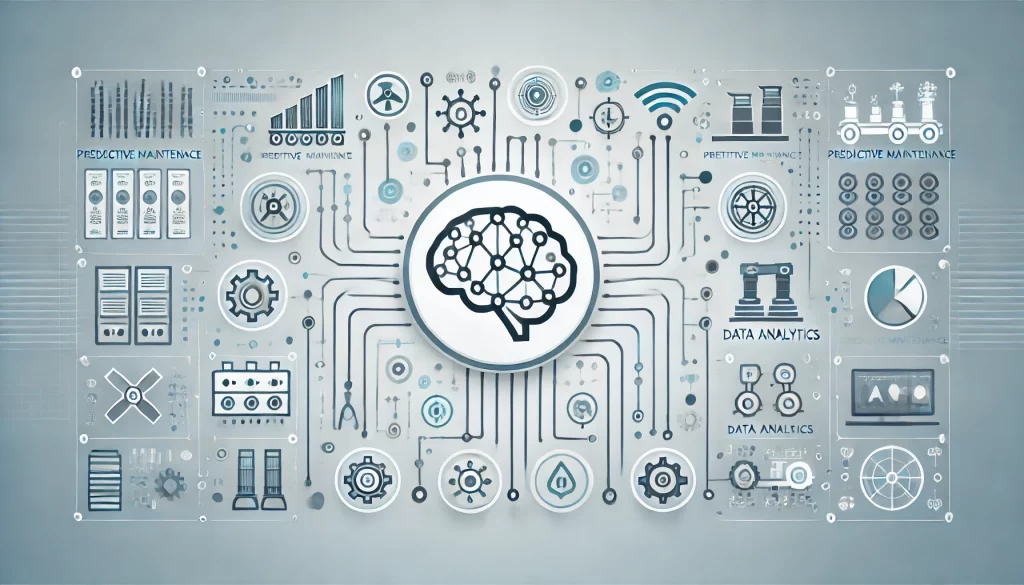Artificial Intelligence (AI) and AI automation are revolutionizing industries at an extraordinary pace. By driving innovation, enhancing operational efficiency, and reshaping business strategies, these technologies are setting the stage for a new era of industrial transformation. In this article, we explore the latest trends in AI automation, spotlight the key innovations propelling these technologies forward, discuss their benefits, and examine the challenges they present.
Current Trends in AI Automation
1. Generative AI: The Creative Powerhouse
Generative AI, particularly models like GPT-4, is transforming content creation, data analysis, and customer engagement. These advanced models generate human-like text, create compelling visuals, and even code software, thereby significantly boosting productivity and creativity across various industries.
2. AI in Customer Service: Redefining Interaction
AI-powered chatbots and virtual assistants are becoming increasingly sophisticated, offering personalized customer support that utilizes natural language processing (NLP) to understand and respond accurately to customer queries. This advancement improves customer satisfaction and operational efficiency, making AI an integral part of customer service strategies.
3. AI-Driven Insights and Decision-Making
Organizations are leveraging AI to analyze vast datasets, uncovering actionable insights that inform strategic decisions. Predictive analytics and machine learning algorithms are instrumental in forecasting trends, optimizing supply chains, and enhancing marketing strategies, thus enabling data-driven decision-making.
4. Integration of AI in Business Operations
AI is being seamlessly integrated into various business functions, from HR and finance to logistics and manufacturing. Robotic Process Automation (RPA) is automating repetitive tasks, while AI algorithms are optimizing workflows, enhancing accuracy, and improving efficiency in data-intensive processes.
5. Digital Twins: Virtual Realities for Real-World Applications
Digital twin technology is gaining traction by creating virtual replicas of physical assets, systems, or processes. These digital models allow for real-time monitoring, simulation, and optimization, leading to improved performance and reduced downtime, particularly in industries like manufacturing and healthcare.
Key Innovations in AI Automation
1. Advanced Machine Learning Models: Expanding Capabilities
The development of advanced machine learning models, including deep learning and reinforcement learning, has significantly expanded AI’s capabilities. These models excel at processing and analyzing complex datasets, enabling more accurate predictions and informed decision-making.
2. Edge AI: Real-Time Processing at the Edge
Edge AI refers to deploying AI algorithms on edge devices, such as smartphones and IoT devices, rather than relying on centralized cloud servers. This approach reduces latency, enhances privacy, and enables real-time data processing, which is crucial for applications like autonomous vehicles and smart cities.
3. Explainable AI: Fostering Trust and Transparency
As AI systems become more complex, there is an increasing demand for explainability to understand how these systems make decisions. Explainable AI (XAI) aims to make AI models more transparent and interpretable, fostering trust and enabling better regulatory compliance.
4. AI Ethics and Governance: Ensuring Responsible AI Use
With the widespread adoption of AI, ethical considerations and governance frameworks are essential. Organizations are developing policies to ensure responsible AI use, addressing issues such as bias, fairness, and accountability to prevent potential misuse of AI technologies.
Benefits of AI Automation
1. Increased Efficiency and Productivity
AI automation streamline processes, minimize human error, and boost productivity. Automated systems can operate around the clock, handle repetitive tasks, and process large volumes of data, allowing human workers to focus on more strategic initiatives.
2. Enhanced Customer Experience
AI-driven tools enable personalized customer interactions by providing tailored recommendations, quicker response times, and proactive support. This personalization enhances customer satisfaction and fosters loyalty.
3. Cost Savings
Automation reduces operational costs by minimizing manual labor, reducing error rates, and optimizing resource utilization. AI-driven insights also contribute to more efficient use of resources and better strategic planning.
Challenges and Considerations in AI Automation
1. Data Privacy and Security
The rapid growth of AI automation raises significant concerns about data privacy and security. Organizations must implement robust data protection measures to safeguard sensitive information and comply with regulations such as GDPR and CCPA.
2. Skill Gaps and Workforce Displacement
As AI automation technologies evolve, the demand for skilled professionals capable of developing, implementing, and managing these systems increases. Moreover, there is a risk of workforce displacement as machines take over repetitive tasks, highlighting the need for reskilling and upskilling initiatives.
3. Ethical and Bias Issues
AI systems can unintentionally perpetuate biases present in their training data, leading to unfair outcomes. Addressing these ethical concerns requires the development of more inclusive datasets, the implementation of fairness metrics, and the involvement of diverse teams in AI development.
Future Outlook: The Path Ahead for AI Automation
The future of AI automation is bright, with continuous growth and innovation on the horizon. Key areas to watch include the evolution of AI ethics, advancements in quantum computing, and the integration of AI with other emerging technologies such as blockchain and 5G. As these technologies mature, they will unlock new opportunities, transforming industries and driving economic growth.
Organizations that strategically embrace AI automation, while addressing the associated challenges, will be well-positioned to thrive in this dynamic landscape. By fostering a culture of innovation, investing in talent development, and prioritizing ethical considerations, businesses can harness the full potential of AI automation to achieve sustained success.
By understanding and navigating the innovations, benefits, and challenges of AI automation, organizations can capitalize on the opportunities presented by these powerful technologies. The transformative era of AI automation holds immense promise, and those who adapt will lead the way into the future.
Explore AI automation solutions here and see how Be Digital can help you stay ahead of the competition.
Join our growing community!
Follow us on LinkedIn, X, and Facebook to stay updated on the latest AI trends, insights, and success stories.


